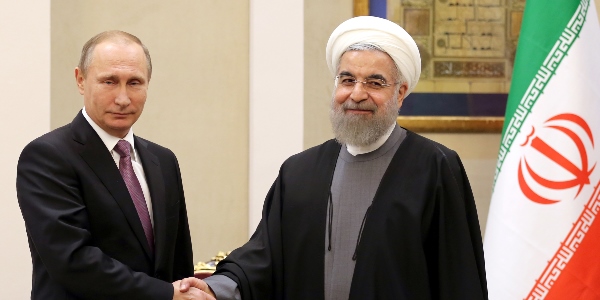- He was able to avoid another Afghan quagmire - which is something the Obama administration has been talking about for months.
- He was able to position Russia as a power broker in Syria - just like he did in Crimea by breaking the Western isolation.
- Under the pretext of fighting DAESH, he stopped the moderate rebel advance.
- He provided Bashar Assad with an additional layer of protection by helping regime forces regain control over 400 towns and weakening the opposition's hand at the negotiating table.
- As an added benefit, his air forces killed close to 2,000 Russians fighting in Syria.

Russia and Iran: The Brewing Fight between Troubled Allies
No longer can the PYD militants shake hands with Bashar Assad and continue their on-off relationship with DAESH to expand their territory. Moving forward, the group will play defense and try to keep what they have.
Share
Russian President Vladimir Putin on Monday took a huge risk in announcing that his air forces had accomplished their mission in Syria and that he had started withdrawing from the conflict zone. The decision will have a similar impact on the Kremlin's move to interfere in the Syrian civil war on Sept. 30. The unanticipated step could alter the regional balance of power - again.
Read the fine print though: Russia isn't really leaving Syria. Having inflicted serious damage to the moderate rebels, the Kremlin gets to keep two military bases and their S-400 air defense system intact. In other words, Mr. Putin could escalate the situation anytime he pleases. As a matter of fact, he issued a thinly veiled threat just days later: "We have the capacity to restore our military presence in the region within hours," Putin said.
By staging a partial withdrawal, the Russian president proved capable of the strategic thinking necessary to consolidate his country's position in the Middle East. Here's what he accomplished:
Tags »
Related Articles








